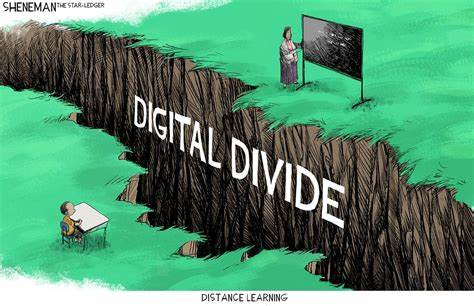In Guyana, a stark digital divide separates urban areas from the rural hinterlands, limiting opportunities for education, healthcare, and economic development. Addressing this gap is critical to ensuring equitable growth as the country continues its technological advancement.

The Problem of Digital Inequality
While cities like Georgetown enjoy reliable internet access, hinterland communities often lack even basic connectivity. This divide hinders access to online learning platforms, e-health services, and digital marketplaces, perpetuating economic disparities.

The issue is exacerbated by geographical challenges. Guyana’s dense forests and rugged terrain make laying fiber-optic cables costly and logistically complex. Additionally, the low population density in these areas reduces the profitability of infrastructure investments for private telecom companies.
Solutions for Bridging the Gap
Satellite-based internet, such as Starlink, offers a promising solution for Guyana’s remote regions. Unlike traditional broadband, satellite systems can deliver high-speed internet without extensive ground infrastructure. Mobile networks can also play a role, particularly with the expansion of 4G and 5G technologies. Government subsidies or public-private partnerships can incentivize telecom companies to extend coverage to underserved areas.
Benefits of Connectivity
Connecting the hinterlands will unlock immense potential. Students in remote areas can access quality education through e-learning platforms. Farmers can use online tools to monitor weather patterns and access market prices. Telemedicine can bring healthcare services to isolated communities, reducing travel costs and improving health outcomes.

Collaborative Action Needed
Closing the digital divide requires coordinated efforts. Government initiatives should prioritize rural connectivity in national development plans. NGOs and international organizations can provide funding and expertise, while private companies should be incentivized to invest in underserved areas.
By bridging the digital divide, Guyana can ensure that all its citizens benefit from the country’s technological progress, fostering a more inclusive and equitable society.